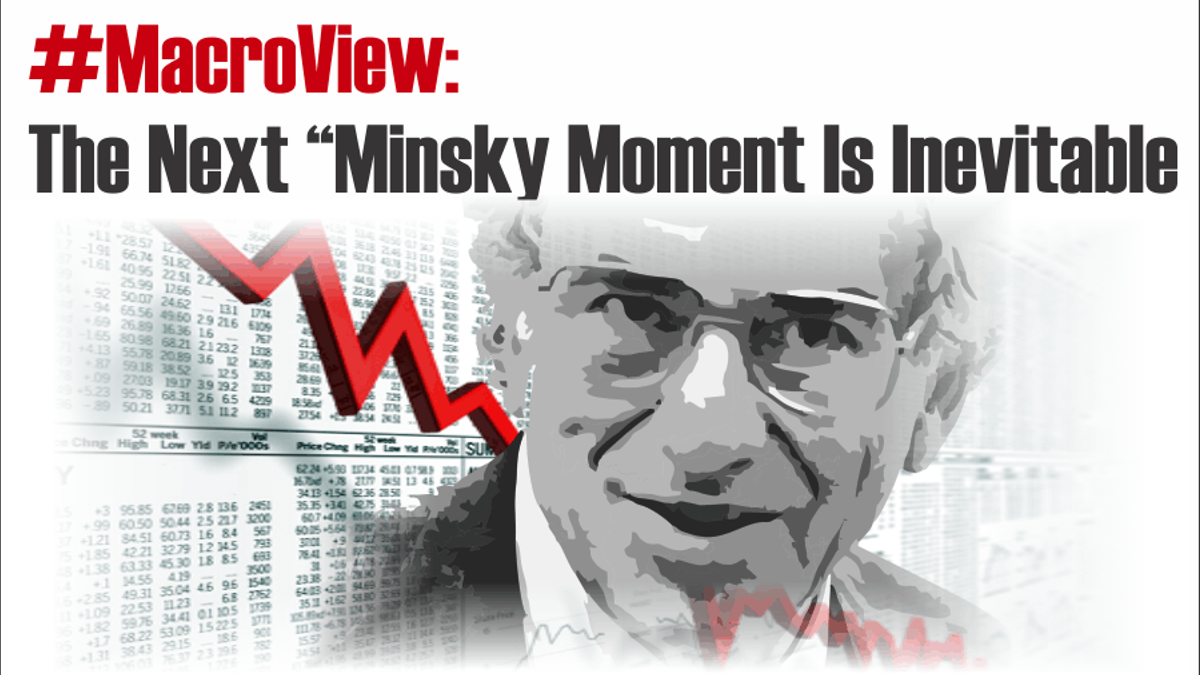A Minsky Moment or an LTCM Instance?

Understanding Minsky Moment
What is an LTCM Instance?
The Difference
So What Happened at Evergrande?
Precedence: An LTCM Instance
Bottom-line
Hong Kong is gripped by the fast-developing debt crisis at real estate developer China Evergrande Group, which is on the brink of skipping interest payments to banks. This has translated into a nasty selloff in Hong Kong, which has seen the Hang Seng Chinese Enterprises Index touch its low from the pandemic shutdown.
Understanding Minsky Moment
Coined in 1998 by Paul McCulley, of PIMCO fame while referring to the Asian Debt Crisis of 1997, a Minsky Moment (named after Hyman Minsky, the famed economist) crises generally occur because irrationally exuberant investors, engaging in excessively aggressive speculation, take on additional credit risk during bull markets. Minsky Moment defines the tipping point when speculative activity reaches an unsustainable crescendo, causing a domino effect leading to rapid price deflation, massive deleveraging as a result of margin calls and unpreventable market collapse.
The most famous example is the Lehman Moment, which came in 2008 when Lehman Brothers went bankrupt as a result of excessive subprime lending via credit default swaps (CDS), and the knock-on effects brought the global financial system to a standstill. Warren Buffet called the CDS instruments "weapons of mass financial destruction".
What is an LTCM Instance?
An LTCM Instance (or Moment) is named for the 1998 implosion of the Long-Term Capital Management - a hedge fund (founded by John Meriwether, the former vice-chairman and head of bond trading at Salomon Brothers), which also followed a sudden loss of confidence and steep market sell-offs after a period of excessive speculation.
The Difference
After LTCM, the Federal Reserve bailed it out, and then cut interest rates. That sparked the last frenetic 18 months of the bull market in the 90s. The Lehman Moment happened when the government decided not to repeat the LTCM experience and allowed Lehman to fail; because in case of the LTCM bailout, it had unwittingly created too much moral hazard — the irresponsible behavior that comes when people are sure they will be bailed out. The result was the worst U.S. market crisis in eight decades, and arguably the greatest global financial crisis ever.
So What Happened at Evergrande?
Whatever kind of moment this is, it has arrived. Major banks have already been told by Chinese authorities that they won’t receive interest payments due on Evergrande loans this week (when this article is published). It is also unclear whether Evergrande will pay about $84 million of interest due Thursday (9/23/21).
So yes, Evergrande, until recently China's second largest property developer, is big enough to create a Minsky Moment within the Chinese market. It's now a $5 billion market cap company with a $300 billion debt load, 200,000 employees and $110 billion in sales. But we should expect the response to be far more LTCM-like than Lehman-esque. This implies an extremely volatile market in the short-run but not one that will implode. Note that the Evergrande situation is not a surprise like the Lehman moment. Evergrande's yield has topped 60% and market has discounted the fact that the coupon is never going to be paid out in full.
To expound a little bit, there is evident contagion, not de minimis, but manageable, in the Chinese real estate sector. However, yields of companies in other industries, including banks, haven’t moved much. And, there has been no contagion from high-yield to investment-grade debt so far either.
For context, until the last few weeks, lending to low-quality or sub-prime Chinese property developers had generated handsome returns than investing in a stock market populated with large, monopolistic conglomerates that were busy making profits from selling to the rest of the world. There have been worries and jitters about a potential Minsky Moment in the Chinese property market for the best part of a decade now.
These risks notwithstanding, the Chinese stock market topped earlier this year after what had appeared to be an unsustainable rally. Its initial dive predated the problems for property stocks, and it has largely stayed stable over the last month as real estate has taken a further leg down. With plentiful stock-specific reasons for problems elsewhere in the index this year, as the government clamped down on various large technology companies, it's fair to say that the Evergrande situation has caused no significant contagion so far.
Precedence: An LTCM Instance
So why is there still relative calm? It boils down to a close reading of the Chinese authorities’ intentions. They have no interest in staging their own Lehman. There has been alarm about the possibility of a Minsky moment for years in Chinese circles, frequently voiced out loud. Officials know what could happen and are determined to prevent it if they can. Efforts to rein in credit have been going on for years. And Evergrande is in trouble largely because the government itself decided to clamp down on property developers through the “three red lines” policy last year.
Brief aside: The default of Baoshang Bank on its interbank liabilities in May 2019 is a good reference. Compared with Baoshang at the time of default, Evergrande has much more total debt, but similar amount of liabilities to financial institutions and in the capital markets. Also, Baoshang had more complex ties in the financial system (with over RMB300bn interbank liabilities with over 700 counterparties) and, very importantly, its default was a complete surprise.
Bottom-line
Governments almost always are reactive, great at making mistakes, and of course, even better at covering them up. But the CCP very clearly intends this to be more LTCM than Lehman. The company has hired Houlihan Lokey and Admiralty Harbour Capital as joint financial advisers to explore “all feasible solutions” while regulators in Evergrande’s home province of Guangdong have dispatched accounting and legal experts. It's going to be orderly and stability is right around the corner.
Share This